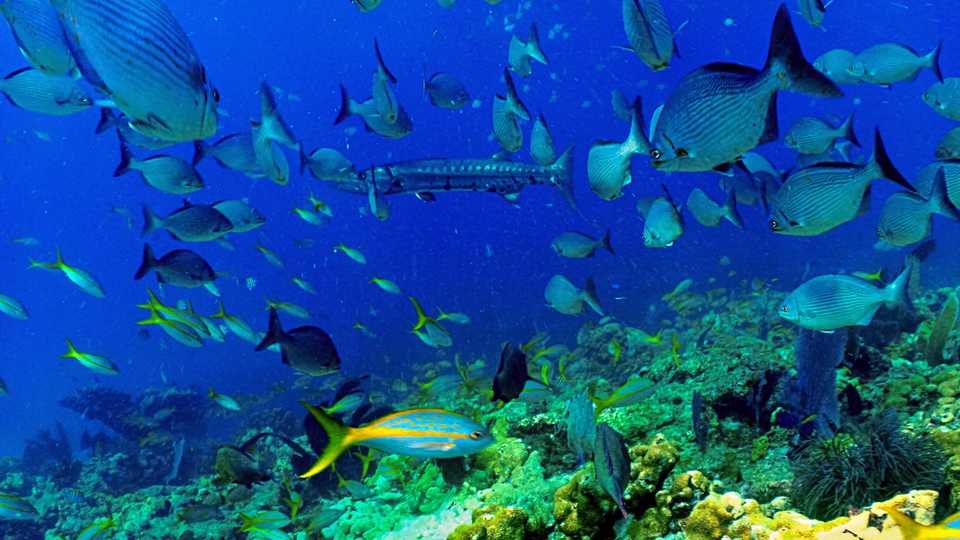Science News
Biodiversity Yields More Productive Fisheries

Biodiversity is key to sustaining fish as a food source in a warming and more variable climate, concludes a recent paper in the Proceedings of the National Academy of Sciences (PNAS).
Scientists analyzed 25 environmental drivers of fish production using data from 4,556 reef fish surveys. The results were significant: diversity of fish species and traits were consistently strong predictors of their community biomass, second only to sea-surface temperature.
“Biodiversity is equally and often more important than water quality, nutrient supply, and human influence in controlling the global distribution of reef biomass,” write the authors.
Diverse fish populations also appeared more resilient to the impacts of climate change. On average, wider temperature ranges in a region reduced fish biomass. But this effect was 50 percent less in the most diverse communities, perhaps because species-rich areas contain fishes with a range of thermal niches.
Diverse communities also faired better in warmer temperatures. While biomass in low-richness communities declined at the highest temperatures (greater than 20° Celsius), it remained stable in high-richness communities.
This suggests biodiverse communities are both more productive and resilient to rising temperatures and temperature swings.
Confirming previous results
The study represents the most comprehensive test of diversity effects on biomass in natural ecosystems in the wild, according to its authors, and validates similar results found in controlled experimental settings.
“This work is a critical step forward in linking insights from experiments in buckets and garden plots to the larger world,” said co-author Jonathan Lefcheck of the Virginia Institute of Marine Science. “It shows that experimental ecologists have in fact been on the right track for 20 years, and that biodiversity is paramount to how natural systems work.”
Biodiversity supports human needs
Fish biomass production provides an unusually direct link from biodiversity to human needs. Over a billion people rely on fish for protein, particularly in the less-developed tropical regions included in the study. Indeed, fish biomass is a key part of the ocean’s economic assets, recently valued by WWF at $24 trillion.
The good news is that high biodiversity in tropical areas will likely buffer the worst warming impacts on fish communities. But probably not forever. Many tropical species are already near their upper thermal tolerance limits.
Management to sustain reef fish biodiversity is likely an influential lever in maintaining these economic assets.
“Biodiversity is more than a pretty face,” said lead author J. Emmett Duffy, of the Smithsonian Environmental Research Center. “Preserving biodiversity is not just an aesthetic or spiritual issue—it’s critical to the healthy functioning of ecosystems and the important services they provide to humans, like seafood.”
Image: Phil's 1stPix/Flickr